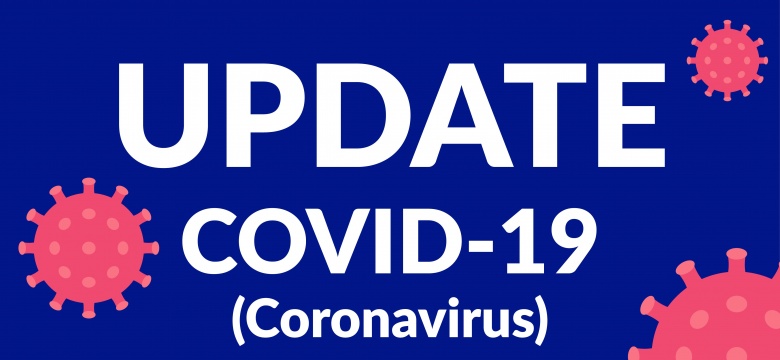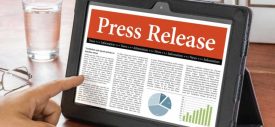COVID-19 Update – November 27 2020

As our Bermuda community now knows, our country status, as it pertains to COVID-19, has changed from “sporadic cases” to “clusters of cases”.
This has implications for how all of us live.
Today I can report that Bermuda has five new confirmed positive cases of COVID-19.
This means that we now have a total of 247 persons who have tested positive for COVID-19. There are 27 active cases, all under public health monitoring, and none are hospitalized or in critical care. A total of 211 persons have recovered, and the total deceased remains at 9.
Bermuda had conducted one hundred and five thousand, three hundred and forty-seven (105,347) tests to date.
Two of the new cases are categorized as imported, and three are under active investigation.
It is extremely disappointing and, yes, unnerving that the number of positive cases continues to rise.
Mr Speaker, you may be wondering what “clusters of cases” means…
Until now, the cases of COVID-19 in Bermuda were imported and intermittent or sporadic. There was no clear sign of further, locally acquired transmission of the coronavirus. This ensured our ‘real time reproduction’ number average over the last seven days – that is, the average number of people who become infectious – was below 1.0 for several months. In this situation, our country status was “sporadic cases”.
However, some weeks ago the number of people testing positive began to increase and become more regular. This is largely as a result of the much higher prevalence of COVID-19 in the origin countries, and our gateway cities in particular. It has pushed our real time reproduction number over 1.0, to 1.22.
In addition, we have two outbreaks, which are not linked, where there has been a sudden increase in the number of positive cases after a period of low prevalence. We find ourselves in the situation of having one or more persons becoming infected as a result of being a close contact with a positive case. These active cases are within well-defined clusters that, initially, at least, were not directly linked to imported cases.
In these circumstances, Bermuda is now classified as having “clusters of cases” per the World Health Organisation.
To this mix we add five new cases for which contact tracing has begun.
Mr Speaker, testing, along with rigorous and unrelenting contact tracing, is vital in our fight against the novel coronavirus. In the past two days alone, we have tested close to 1500 people in a massive screening exercise to locate those with COVID-19, investigate their close contacts and issue quarantine instructions as necessary. This number include some 500 frontline service workers – and I would like to take this opportunity to thank the testing teams and restaurants for tackling this so quickly.
These screening efforts will continue, with additional testing opportunities being made available, including drive through options.
As a start, additional testing will be stood up this weekend, and the Ministry is expanding its testing opportunities next week. You can find the latest information on the testing pop-ups at coronavirus.gov.bm.
Mr Speaker, COVID-19 is a sneaky disease. A person can be infected without feeling or showing any symptoms which would indicate that person is sick. In this asymptomatic state, one person has the ability to infect many others, through the air, just in the course of going about their normal life activities – which is why wearing a face mask, maintaining proper physical distance and having good hand hygiene are so important.
For those who do begin to exhibit or feel some or any symptoms of having COVID-19 – fever, vomiting, diarrhea, cough, shortness of breath or difficulty breathing, headache, congestion or runny nose, fatigue, muscle or body aches, new loss of taste or smell, sore throat – the Ministry advises that you contact your GP in the first instance. If you live or work with someone who shows signs of having COVID-19, speak up! Let your relative/friend/co-worker know the next step is to contact their doctor, who will assess their symptoms.
Mr Speaker, it is important to state that when and if there is a need to quarantine, you will be informed by the Ministry of Health. We recognise that a number of establishments are making their own decisions to close when someone associated with the organisation is identified as either positive for COVID-19 or a close contact of someone who has tested positive.
This is not necessary.
If, based on the scientific evidence, and as a result of the contact tracing investigations, there is a need to quarantine groups of people connected with a particular company or business, you will be informed. Otherwise, the Ministry expects that establishments will continue to operate as they normally would.
To repeat: the Ministry will advise when quarantining is necessary.
Mr Speaker, I can assure Honourable Members that the Ministry of Health is not operating in a ‘business as usual’ manner. We have stepped up our screening, as I’ve just mentioned; and, we are working more closely than ever with GPs, communicating the urgent need to identify patients potentially infected with the coronavirus and upgrading the portal so that they can make appointments for their symptomatic patients immediately.
Mr Speaker, we know that ‘pandemic fatigue’ has set in. We all suffer from it. You might leave home without your face mask and think, “This one time, it doesn’t matter”. It does matter. Each and every time.
As a result of the uptick in the incidence of positive cases, Mr Speaker, the Government is revisiting our COVID-19 directions with a view to making modifications.
In recent weeks, I have begun to inform the public of changes to be made with respect to public health Regulations, Orders and Notices.
First, and in view of the extra vulnerability of our seniors, the Ministry announced it will be restricting care home visiting. Only essential visitors will be allowed inside the home, although restricted outdoor visiting will be permitted. This will impact the availability of activities in these homes, including daycare.
This restriction on care home visitation begins today.
Second, a number of changes are being made with respect our traveller requirements and protocols, pursuant to the Quarantine (COVID-19) (No. 3) Order 2020.
The pre-travel test, which visitors are required to have, and residents are strongly encouraged to get, must be taken no more than five days prior to arrival in Bermuda, and the negative result uploaded to the Travel Authorisation webpage. Right now, the period for that test is no more than seven days before departing. However, as the availability of pre-travel testing has improved, and the number of imported positive COVID-19 cases has increased, it is prudent to make this change at this time.
Mr Speaker, the Order also provides for returning residents to be fit with an electronic monitoring device. This bracelet works with an app to be downloaded onto your phone. For those being fit with the bracelet, there will be an additional $30 charge and for those needing to rent a mobile device, there will be a charge of $50. These additional charges simply cover costs.
Amendments to the legislation are being made now, and the Travel Authorisation webpage is in the process of being updated. We anticipate the updates will be in place no later than Friday, 4 December.
Mr Speaker, once landed, travellers are subject to ‘mobile quarantine’ restrictions, and these, too, are being reassessed.
The Ministry will provide clarity around what travellers can and cannot do between arriving on the island and receiving their Day 14 negative COVID-19 test result.
For example, currently, if you have both negative pre-arrival and arrival tests, you are able to move around the island and obtain necessary provisions like groceries. However, you should work remotely, rather than go into your workplace and interact with colleagues.
The instructions for travellers for their first 14 days on island will cover activities such as indoor dining, workplace attendance and meetings, public transport, school, bars and nightclubs, day care, camps, gyms, spas, beauty salons, barbers, theatres and museums, religious establishments, contact sports, and weddings, funerals and other large gatherings.
It will make clear to travellers what is permissible after receiving arrival, Day 4, Day 8 and Day 14 negative test results.
Mr Speaker, the incidence of positive cases is manifesting itself in a variety of settings, and we must be more vigilant about how we live our lives now.
In that regard, the Government is also assessing adjustments to the Public Health (COVID-19 Emergency Powers) (No. 3) Regulations, which apply to residents and visitors alike, not just travellers.
One such change was announced recently, namely a reduction in the size of large groups from 75 to 50 persons.
Mr Speaker, gathering in large groups, especially where food and drink are involved, will naturally lead to a relaxation of our adherence to public health protocols. This is inevitable. Mask wearing decreases, we stand more closely together and, if the venue is noisy, we shout.
However, as I have indicated already, COVID-19 is easily transmitted from person to person in the air. Therefore, it is important to keep gatherings small and contained. This cannot be repeated too many times: it is critical that your social bubble be very compact. This is no time to be making new friends and attending large house parties!
In addition to reducing the size of large groups, the Government is reviewing the current mask mandate with a view to broadening its application.
Mr Speaker, technical officers at the Ministry of Health are engaging with stakeholders regarding the changes being considered. However, we cannot afford to be complacent nor can we relax at this juncture. All of us have worked too hard to stifle this disease and put our economy on the road to recovery.
Let me be clear: this Government does not want to resort to business closures, nightime curfews or reinstating shelter in place; but we are prepared to make the difficult decisions if it becomes necessary to do so. To prevent this from happening, it is important that the entire community follows the rules.
The situation we find ourselves in is extremely serious. However, we know more about the virus now than we did in March and April this year. So, decisions made with respect to ‘rollbacks’ are based on our improved knowledge of, greater experience with, and more tools to detect and treat the coronavirus. Any decision regarding restrictions are founded in good public health rationale. One of the most important factors is the possibility of our healthcare system being overwhelmed. Fortunately we still have no confirmed case requiring hospitalisation.
The increase in positive cases is being very closely watched, and everyone should expect further rollbacks if circumstances dictate.
That said, the Government is aware of the need to find a balance between public health and economic ‘health’.
As we have done since the beginning of the pandemic, the Ministry will closely monitor the impact of the public health measures being modified now, and keep the public informed.
The Ministry of Health staff have worked tirelessly for months now, to keep all of us safe. I want to take this opportunity to thank them for their dedication and commitment. It is truly “above and beyond”.
In closing, I would like to re-emphasise to the community the crucial importance of following public health protocols – wear your mask, practice physical distancing, cover your cough, stay home if you’re sick and avoid the 3 Cs: closed spaces, crowded spaces and close-contact settings. To this I will add, “Get tested!”
The Bermuda community has done an excellent job so far of sticking to the public health guidance. Let’s keep up the good work!
Thank you, Mr Speaker


